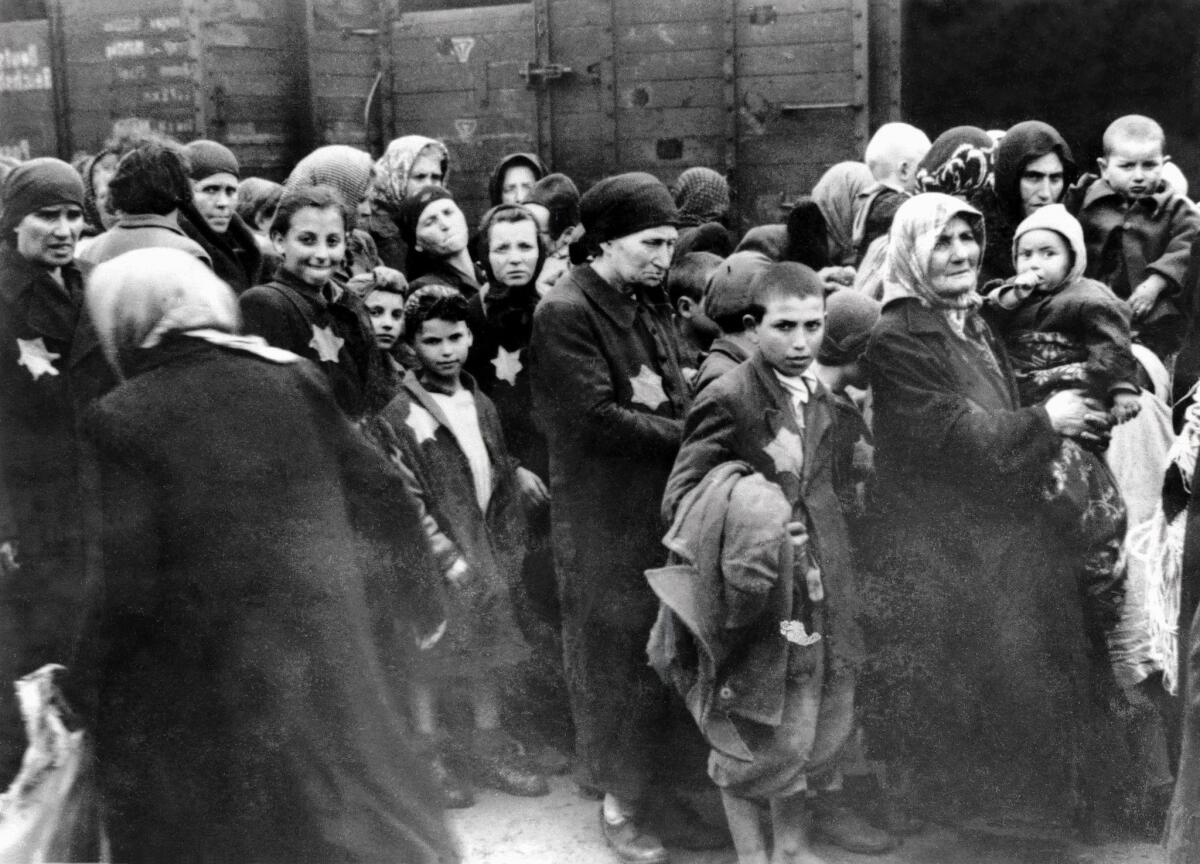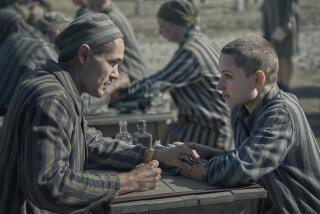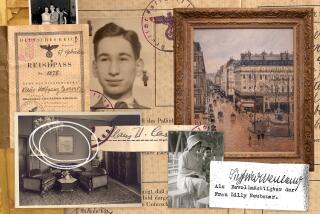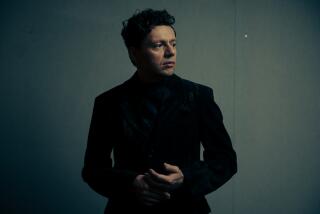Call for justice interrupts former Nazi guard’s quiet life in U.S.

He didn’t run, he didn’t disappear. The former Nazi lived peacefully in a Philadelphia row house, sometimes feeding treats to his neighbor’s dog.
Johann Breyer’s true identity had stopped being a secret decades ago, at least to the U.S. government and the dwindling number of Nazi hunters who knew his name.
As a young man, Breyer had been an SS guard at Auschwitz, where the Nazis killed more than a million victims, the vast majority of them Jews. He’d worn the skull-and-crossbones insignia of the “Death’s Head” guard battalion to which he belonged, according to court records, but said he never hurt anyone.
In 1952, Breyer came to the U.S. to build a new life. For almost seven decades since the war, he did not face a criminal trial. But his quiet American retirement ended Tuesday, when U.S. Marshals arrested him at home.
Now 89, Breyer faces extradition to Germany, where he is accused of complicity in the deaths of 216,000 Jewish men, women and children who died at the Auschwitz complex in Nazi-occupied Poland while he was there, prosecutors said. (Overall, an estimated 11 million people were killed in the Holocaust, 6 million of them Jews.)
A hearing will be held before a U.S. magistrate in August. Breyer’s attorney did not return messages seeking comment.
A neighbor of 20 years said Breyer was an unlikely war criminal.
“He didn’t seem like what history says a Nazi should be like,” Ken Perkins said. “He just seemed like an ordinary person who wasn’t hiding anything.”
Perkins said rumors had floated around the neighborhood about Breyer’s past for years, but he had given them little thought.
“We never got into his life or what he did,” said Perkins, whose backyard faces Breyer’s. “I don’t condone what they’re accusing him of, if he did it. But personally, through my experience, he seemed like a nice guy.”
By no accounts was Breyer a key cog in the Nazi movement. Born a farmboy of German descent in eastern Slovakia — then part of the young republic of Czechoslovakia — he enlisted in the Waffen-SS — the armed wing of the Nazi party — at age 17 after receiving a recruitment letter in 1942.
Breyer’s version of events, revealed in court records, is that he was drafted and that the mayor of his village told him he had to go. Even though he was assigned to the Death’s Head guard battalion at Auschwitz, he said, he refused to kill anyone, so he served as a perimeter guard, far from the killing. He says he never shepherded prisoners from the trains to the gas chambers.
Breyer says he soon deserted, hiding in barns and the woods before rejoining his unit for combat duty against the Russians as the war’s end neared.
But officials say there is no record of Breyer deserting and assert that his unit would have been closely involved with handling the prisoners who were put to death.
“That’s one of the oldest defenses,” said Aaron Breitbart, a senior researcher at the Simon Wiesenthal Center in Los Angeles. “The perimeter-guard defense, and the baker defense: ‘Yes, I was there, but I was a baker.’ ... It seems as though everybody is a perimeter guard when they’re finally caught. Well, not everybody who is caught could have been a perimeter guard.”
Charlie Sydnor, president and executive director of the Virginia Holocaust Museum, said records from Auschwitz showed that Breyer’s unit on certain days would have been responsible for unloading victims from the trains as they were sorted into groups of who would live and who would die.
“Guards in concentration camps did everything that was required to persecute the prisoners in the camp, and Mr. Breyer was doing all of that in Auschwitz,” Sydnor said.
Breyer says his war ended when he was captured by Soviet troops. When he immigrated to the United States, he omitted his background as an SS guard at the death camp, according to court records. If he had disclosed it, he would not have received a visa. He became a U.S. citizen in 1957.
Decades later, in 1992, U.S. officials tried to revoke his citizenship to make it easier to deport him for his alleged crimes. But during denaturalization proceedings it was revealed that Breyer’s mother was an American, born in Pennsylvania, who later moved to Slovakia.
In a series of court battles lasting more than a decade, Breyer successfully argued that his mother had unknowingly bestowed him with American citizenship at birth, meaning he couldn’t be deported for lying to get a visa — because, secretly, he had been an American all along.
Breyer returned to his quiet life. Then on June 17, 2013, a district court in Germany issued a warrant for his arrest. The U.S. filed a complaint for his extradition last week.
Attorney Willan F. Joseph, who represented Breyer for several years during the immigration case — and lost several friends in the process — said he was shocked by the latest developments.
“Mr. Breyer fought a fight here years ago, he prevailed here,” Joseph said. The new case seems like “a backdoor effort to achieve what the Justice Department couldn’t achieve” earlier.
Breyer and his wife appeared to be “very pleasant people,” Joseph said.
“For those who may have suffered at his hands, I understand how they feel. ... [But] I would imagine that when I am 89 years old, I wouldn’t want to be sent out of the country where I’ve spent half my life,” Joseph said.
Batame Hertzbach, the daughter of two Holocaust survivors and the chairwoman of the Jewish Federation of Greater Philadelphia’s Holocaust Program, learned about Breyer when she read about his arrest in the newspaper.
“I find it quite troubling because he’s been living amongst us,” Hertzbach said. “He’s been hiding in plain sight. And, well, he got away with it. He lived a long life.”
Michael Herskovitz, an 85-year-old Holocaust survivor who lives outside Philadelphia, spent more than a year in Auschwitz as a teenager. His mother, father and 3-year-old brother did not survive.
Although Herskovitz didn’t know Breyer, he said, “believe me, he was not a nice person, because you couldn’t be nice there.”
“I don’t have hate in me anymore,” Herskovitz said, “but I still feel he needs to be brought to justice.”
More to Read
Sign up for Essential California
The most important California stories and recommendations in your inbox every morning.
You may occasionally receive promotional content from the Los Angeles Times.











